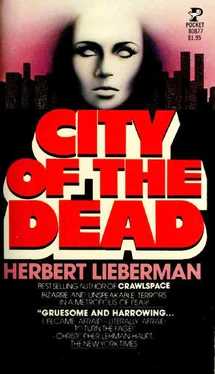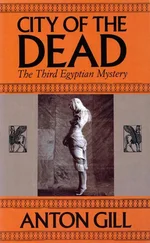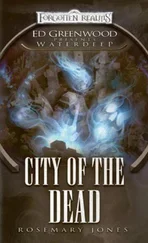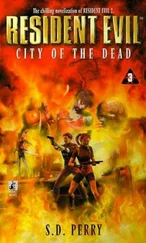In the next moment Konig flicks a switch on his phone, picks up the receiver and hears Carver’s voice on the other end.
“Yes, Doctor.”
“Get me Bill Ratchett’s office down at the Tombs,” he snaps, then bangs the receiver back down. Once again he is sitting there fuming. Expecting at any moment the Deputy Mayor’s phone call. The stern rebuke. The chilling admonitions. Hints of dire things to come, all uttered in the lofty verbiage of municipal officialdom, expressing His Eminence the Mayor’s high moral dudgeon—“peeved—vexed—outraged—furious—repeat, furious —”
The buzzer on his phone sounds and it is Carver again. “Ratchett’s not in, Doctor.” Konig grumbles something about leaving a message to call back, slams the phone back down and rises. He has a need now to get away from his desk, away from his office, away from himself. In the next moment he is out his door, storming down corridors emptied by the noon lunch hour, clattering down the green descending spiral of Stairway D.
He has not been down to the mortuary since Haggard found him there in the early hours of the morning, but even at this late hour, four or five gurney carts are still lined up in the receiving area, their grisly cargoes still sacked in canvas, waiting to be unloaded into the huge purring refrigerators.
For a while, cut off from all the world above, he stands there waiting for the silence and the curious isolation of the place to soothe him. But standing there in noonday silence, he feels only estrangement, an alienation, a curious revulsion from things he had formerly loved. For the first time in his life he feels like a stranger here. Like a man who had inadvertently wandered into someone else’s nightmare. Suddenly, the place to him is a horror, a freak show, and he must flee it. Get the stench of it out of his nostrils. Get back up to the sunlight and the fresh air above.
He turns, but in that moment he is suddenly aware of faint scratching noises coming from the autopsy suites behind him. At once, in his feverish, overwrought mind, he imagines more foul play. Who’s in there now—at this hour when everyone is supposed to be out to lunch?
He crosses quickly to the doors leading to the autopsy rooms. Reaching there, he peers through the glass window panes set in the doors and sees there the tall, white-robed figure of Tom McCloskey hovering above the reconstructed Tinkertoy figures of Ferde and Rolfe. With a long steel tape, like a tailor measuring a man for a suit, the young man is very carefully taking limb and torso measurements, then tabulating them in a notebook.
Konig watches, with an odd pleasure, the quiet, purposeful motions of the young pathologist—all smooth, thorough, methodical. Then suddenly, for the flicker of an instant, Konig is forty years younger, a boy of twenty-three or so, just out of medical school. He is standing in that same suite of rooms, just where McCloskey is standing now, wearing just such a long, white, foolish surgical robe. Beside him stands old Bahnhoff, that black noisome cigar screwed into the center of his mouth, puffing furiously, and observing with a finicky vigilant eye the young man hovering there, above a flayed body, scalpel in hand, carrying out an extremely delicate arterial survey.
Such an ache comes suddenly upon him. Such a longing. Such a need to reach out and touch that moment again, drag it forcibly back across the spate of years, hug it to his chest as you would a lost child—those two figures lost irretrievably somewhere in the vanished years. As if he might simply walk through those doors and be that boy again. Stand there trembling beside old Bahnhoff, trying desperately to please him.
A rush of curious affection suddenly overtakes him. Not for the ghost of his vanished youth. That he knows was too mawkish and painful to feel anything other than contempt for. But it is rather an affection for young McCloskey with his tape measure and pad—and that ridiculous, ill-fitting surgical robe. Such affection. Such grief. If he could only warn the boy.
In the next moment, he turns and goes.
“Who did you say is the artist?”
“Emily Winslow. Name’s right there in the corner.”
“Oh, yes, of course… Winslow.”
“Not terribly well known yet. But she will be.”
1:00 p.m. The Fenimore Gallery, Madison Avenue and 67th Street.
“Greatly talented,” says Konig.
“Yes, she is.”
“Greatly talented,” he murmurs again a little foolishly. “Greatly talented.”
And for a while the two men stand there, Konig and Mr. Anthony Redding, gazing at the three little gouaches.
“And you just have the three?” Konig asks finally.
“’Fraid so.” Redding glances somewhat disapprovingly at the rumpled figure with tie askew and slightly demented eyes. “We’ve sold quite a bit of her painting though. This is all we have left. Unfortunately,” he goes on apologetically, “these are not the most appealing of her works.”
“Not appealing?” Konig’s brow arches. “On the contrary, I find them very appealing. Oh, I s’pose there is a certain air of morbidity about them. I quite agree. But still I find they say something to me.”
“You do?”
“Yes, I do,” Konig goes on, fiercely protective, warming to his subject. “Something universal. I’m profoundly touched by them.”
“You are?” An expression of puzzlement and suspicion mingles on Mr. Redding’s sallow features. “Well,” he goes on agreeably, “she is a superb draftsman. Unusual to see that kind of discipline in one so young.”
“Is she young?” Konig asks slyly, enjoying in some odd way this utterly bogus role he plays.
“Yes, quite young. Early twenties, I should judge. I’m not sure. And utterly different from the other young painters of her generation, opportunists all trying to look chic and trendy. Winslow’s not trendy at all. Not voguish. Not afraid to be conventional. A little old-fashioned. Not hung up on style for style’s sake, and absolutely determined to master the tools of her craft. Yes, she has something to say. She is very good.”
“Yes.” Konig swells a bit with pride. Oddly enough, he’s moved. At a loss for words. Once again his eyes pore hungrily over the three little canvases. Displayed rather prominently as they are in this sleekly elegant gallery, exuding opulence and taste, they seem to take on a curious air of importance. Oddly enough, he’s impressed. But still, the paintings are profoundly sad. That woeful little shack in the burned-out field—so desolate, so forlorn. And even more disturbing, the study of broken glass, lethal little shards. And then the soiled underpants moldering in the fetid shadows of some tenement gloom. Something like a shiver courses through him.
“I’ll take the three,” says Konig suddenly.
“You will?”
“Yes, of course.” Konig is a little shocked at the sound of his own voice. As if someone else had spoken those rash words. “I said so, didn’t I?”
A look of something like wariness comes into Redding’s eyes. This man in his tatty suit—hardly the sort of person he’s accustomed to selling paintings to.
“They’re not inexpensive,” Redding says rather grandly. “I hardly imagined they would be,” Konig snaps, matching the grandeur.
The gallery owner is baffled. Somewhat at a loss. Not certain whether the man is a wealthy eccentric or merely a crackpot in off the street. “I can let you have the three for fifteen hundred,” he offers cautiously, half expecting the man to bolt out the door.
“Fine,” says Konig, whipping out his checkbook. “You will take a check?”
“Certainly,” says Redding, suddenly in a tizzy. Even his British accent lapses. “Come right this way to my desk, Mr.—”
Читать дальше












